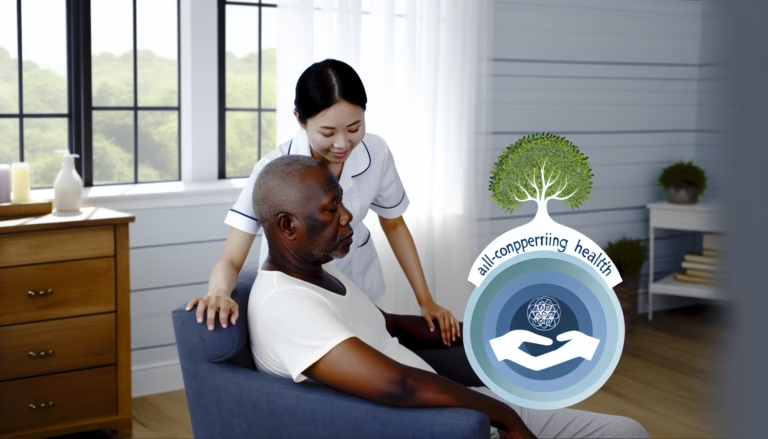The Power of Personal Care: Impact on Home Health Patients’ Well-being
Personal care is a cornerstone principle of effective home health management. From maintaining hygiene routines to performing physical exercises, personal care plays a vital part in improving the quality of life for home care patients. It directly contributes to their overall well-being, body, mind, and soul.
When a person falls sick or suffers from a chronic illness, their day-to-day routines get disrupted. Their capacity to perform basic activities like grooming, getting dressed, or even eating can become challenging. In such situations, personal care comes into the picture, paving the way for a restorative healing environment in the comfort of their own home.
The Role of Personal Care in Disease Management
On a physical level, personal care can make an immense difference in managing disease symptoms and recovery. It includes help with bathing, grooming, mobility, feeding and medication management. Aside from ensuring comfort, these fundamental health routines can also prevent complications such as infections and deteriorating health conditions.
For instance, in patients with diabetes or heart disease, a routine of regular exercise and a healthy diet are integral parts of personal care. These not only help in managing the symptoms but also in slowing the progression of these diseases.
Personal Care Impact on the Mental Health
Personal care doesn’t only cater to physical well-being. It is also deeply intertwined with mental health. Chronic illnesses can take a significant toll on a person’s mental state, causing emotions like fear, anxiety, and depression. Incorporating mindfulness, meditation, and other cognitive activities into personal care routines can help reduce stress and improve mental health.
An inspiring aspect of personal care is that it promotes self-confidence and a sense of independence. By engaging in simple activities such as grooming, dressing, or even preparing a meal, individuals can regain a sense of control over their lives, and this in turn boosts their self-esteem and overall outlook.
The Social Aspect of Personal Care
When people hear about personal care, they often think of it as a solitary act. But personal care also has a social element to it. Home health patients, particularly the elderly, can benefit from social interactions in mitigating feelings of isolation and loneliness.
Personal care encompasses tasks such as shopping, running errands or attending social events. These activities are crucial for maintaining social contacts and leading a balanced and fulfilling life.
Conclusion
Personal care in home health is about understanding and addressing the unique needs of each individual. It’s about helping patients regain their strength, confidence, and independence while ensuring their mental, physical, and social well-being. It’s about transformation, growth, and empowerment – all within the home’s comforting and familiar surroundings.
Every step taken in personal care, however small it might seem, contributes to an improved and healthier life for home health patients.



